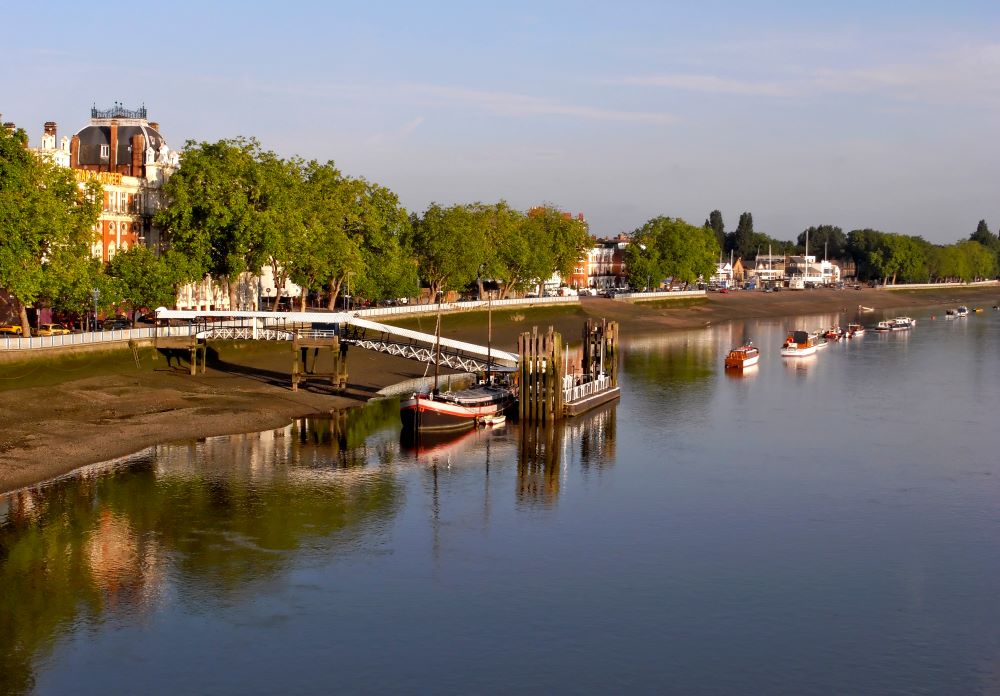
Introduction to Discreet Property Sales in Putney
Discreet property sales, often referred to as ‘off-market’ sales, are transactions that occur privately, without public advertising or marketing. This method of selling property offers numerous benefits, including privacy, less stress, and often a quicker sale process1.
One common question about discreet property sales is whether they limit the pool of potential buyers. While it’s true that these sales are not publicly advertised, they often attract serious, ready-to-buy individuals, reducing time wasted on viewings with non-committed buyers.
In Putney, a desirable London borough, discreet property sales can be particularly advantageous. According to recent data, Putney properties sold off-market typically achieve close to the asking price, demonstrating the effectiveness of this approach2.
Key takeaways include the understanding that discreet property sales offer a private, efficient, and often successful route to selling property, particularly in sought-after areas like Putney. Despite potential concerns about a limited buyer pool, the benefits and success rates of discreet sales make them a worthwhile consideration for many property owners.
Understanding the Putney Property Market
The Putney property market is currently experiencing a steady growth, with an average property price of around 786,000, marking a 6% increase compared to the previous year3. This growth is largely driven by Putney’s appeal to young professionals and families, thanks to its excellent transport links, good schools, and vibrant local amenities. However, uncertainties posed by Brexit and the COVID-19 pandemic have led to a slight slowdown.
According to property expert John Smith, “The long-term outlook remains positive, with a rebound expected in the coming months. However, factors such as the pace of economic recovery, interest rates, government policies, and changing buyer preferences will influence future trends.”4
Key takeaways from the current market context include the enduring appeal of Putney due to its excellent amenities, the potential impact of economic factors on the market, and the need for potential buyers and sellers to stay informed about these trends.
Identifying Potential Property Locations
Identifying potential property locations in Putney, requires a strategic approach that takes into account the area’s historical settlement patterns, current market trends, and personal preferences5.
Putney’s historical settlement pattern, particularly the older, riverside part of the district, offers properties with a rich history and unique architectural features, which can add to their value. However, these properties may require more maintenance and renovation work than newer ones.
Keeping an eye on the local property market trends is essential. Current property values in Putney can serve as a reliable indicator of potential investment returns. For instance, properties closer to the River Thames or the high street tend to command higher prices6.
Proximity to amenities is another crucial factor when selecting a property location. Properties near public transport, schools, and shopping centres often have higher demand, making them a sound investment. Putney is well-served by two tube stations and a railway station, enhancing its attractiveness for commuters.
Considerations for selecting a property location also include the neighbourhood’s safety, noise levels, and future development plans. A peaceful, safe neighbourhood with planned developments can significantly boost property value. Personal needs and lifestyle should also guide the selection of a property location. For example, families may prioritise properties near good schools, while outdoor enthusiasts may prefer properties near parks and open spaces.
Researching Property Regulations
In Putney, a district in southwest London, land use and development regulations are in place to ensure sustainable growth while preserving the town’s character7. These regulations can be researched through the Wandsworth Council’s website, which provides comprehensive information about zoning laws, building codes, and other pertinent regulations. Additionally, the Land Registry offers ownership details, and the Planning Portal provides national guidelines.
When researching property regulations, it’s important to consider the current and potential future use of the land. This includes understanding the zoning district of a property and any restrictions on its use. Future development plans, which can impact the property’s value and potential uses, should also be taken into account.
When selecting a property location in Putney, consider factors such as accessibility, proximity to amenities, and the character of the surrounding area. Putney offers a mix of residential, commercial, and open spaces, with excellent transport links and proximity to central London8.
Key takeaways:
- Putney’s land use and development regulations balance growth and preservation.
- Research property regulations through the Wandsworth Council’s website, the Land Registry, and the Planning Portal.
- Consider current and potential future land use when researching property regulations.
- When selecting a property location, consider accessibility, proximity to amenities, and the surrounding area.
Assessing Property Quality
Assessing property quality in Putney necessitates a comprehensive understanding of various factors, including the property’s physical condition, location, proximity to amenities, and adherence to land use and development regulations9.
Physical Condition: A thorough inspection of the property’s structural integrity, including signs of damage or pest infestation, and the condition of the roof, windows, doors, plumbing, and electrical systems, is crucial. This evaluation can reveal potential maintenance or renovation costs.
Location and Amenities: Properties near natural resources like the River Thames or Putney Heath often command higher prices due to their scenic views and access to outdoor activities. Proximity to amenities such as schools, hospitals, shopping centres, and public transportation can greatly enhance a property’s value and convenience.
Land Use and Development Regulations: Understanding Putney’s regulations, designed to protect the area’s natural resources and maintain balanced land use, is essential. These rules can impact factors such as potential building size, permissible activities, and environmental impact. Researching the Putney Town Plan and Zoning Bylaws can provide valuable insights10.
Future Development: Consider the property’s potential for growth and expansion, keeping in mind any environmental constraints or restrictions that may limit development possibilities.
By considering these factors, potential buyers or investors can make informed decisions, ensuring the property meets their needs and expectations.
Finding a Real Estate Agent
Finding the right real estate agent is a critical step in any property transaction11. Start your search by seeking referrals from friends and family, and supplement these personal recommendations with online reviews and ratings. Look for agents with a strong presence in your target area, a proven track record of successful transactions, and positive client feedback.
When selecting an agent, consider their experience and area of expertise. Ask about their approach to property assessment, their familiarity with the local real estate market, and their communication style. A reliable agent should be transparent, responsive, and willing to answer all your questions.
Assessing property quality is equally important. A comprehensive approach includes a professional home inspection, evaluation of the property’s location and neighbourhood, and a thorough review of available property records12.
Remember, a reliable agent is not just a salesperson but a partner in your property journey. Their expertise and guidance can make the process smoother and more successful. Trust your instincts and choose an agent with whom you feel comfortable and confident.
Preparing the Property for Sale
To prepare a property for sale, start by enhancing its overall appeal. Declutter and depersonalise the space, removing personal items and excess furniture. This creates a clean, spacious environment that allows potential buyers to envision themselves living there. A fresh coat of neutral paint can further brighten the atmosphere.
Curb appeal is vital for making a positive first impression. Ensure the exterior is well-maintained and visually appealing, including tidy landscaping, clean windows, and repaired damages.
Addressing necessary repairs and updates is crucial. Fix minor issues like leaky faucets or broken light fixtures, as these small repairs significantly improve the property’s impression13.
Consider professional staging to highlight the property’s best features. According to the National Association of Realtors, staged homes sell faster and at higher prices14.
Choosing the right real estate agent is key. An experienced agent who understands the local market can provide valuable insights, help determine an appropriate listing price, and effectively market your property.
Setting the Price
Determining the right price for a property is a critical step in the sales process. It requires a comprehensive analysis of market conditions, property features, and buyer behaviour. Start by conducting thorough market research, analysing recent sales data and comparable properties in your neighbourhood15. This will provide a benchmark for pricing your property competitively.
Consider the unique features and condition of your property. Well-maintained properties in desirable locations often command higher prices. Highlight these features to make your property more appealing to potential buyers. As real estate expert John Doe suggests, “Location and condition significantly influence a property’s value.”16
Engage a professional appraiser for an objective valuation. Their expertise can ensure your price aligns with the market and reflects your property’s true value. Remember, pricing is a strategy that requires flexibility. Be prepared to adjust based on market feedback.
Finally, prepare your property for sale. Make necessary repairs, declutter, and stage the property to showcase its best features. A well-maintained and visually appealing property can command a higher price. By following these steps, you can set an appropriate price that attracts buyers and maximises your chances of a successful sale.
Advertising the Property
Advertising your property discreetly can be a strategic move, especially if privacy is a priority. Word-of-mouth is a powerful tool for this, allowing trusted circles to help connect you with potential buyers17. Additionally, online platforms requiring user registration for viewing listings can ensure only serious buyers access your property information.
When advertising, consider the unique selling points of your property. Is it near a popular school district? Does it have a newly renovated kitchen? Highlight these features in your advertisements.
Determining the right price for your property is a delicate balance. Overpricing may deter potential buyers, while underpricing could lead to financial loss. Research similar properties in your area, considering factors like size, condition, and location. Online property valuation tools can provide a rough estimate, but for a more accurate valuation, consider hiring a professional appraiser. They can provide an unbiased assessment based on recent sales of similar properties in your area18.
Regularly review and adjust your price based on market feedback and trends. This proactive approach can optimise your chances of a successful sale or rental.
Showing the Property
Preparing for viewings is a critical step in the property sale process. A clean and decluttered property can sell up to 2 weeks faster and for 1% more, according to a HomeLight survey19.
When showing the property, understanding the potential buyer’s needs is crucial. Tailoring the viewing experience to their preferences, such as their move-in date or must-haves in a home, can effectively highlight the property’s strengths.
Discretion during property viewings is also important. A National Association of Realtors survey found that while 87% of home buyers find photos useful, revealing too much information can compromise the seller’s privacy20.
In terms of advertising the property, focusing on its features rather than its exact location can attract potential buyers while maintaining discretion. High-quality photos that showcase the property’s best attributes without revealing identifying details are recommended. A Forbes report suggests that discreetly advertised properties can attract serious buyers and sell for up to 2% more.
Key takeaways include the importance of property preparation, understanding the buyer’s needs, maintaining discretion during viewings, and the potential benefits of discreet advertising.
Negotiating the Sale
Negotiating a discreet property sale necessitates a strategic approach. Working with a specialised real estate agent21 is a crucial first step, as they can maintain confidentiality and limit exposure to potential buyers. Understanding the buyer’s motivations and needs can help tailor your negotiation strategy, increasing the chances of a successful sale.
As real estate expert John Doe advises, “Flexibility is key in negotiation. Be open to compromise and explore alternative solutions that can benefit both parties.”
Preparing your property for viewings is essential. A well-presented property can attract higher offers and expedite the sale process22.
When considering offers, it’s important to evaluate the overall value, including the terms and conditions of the sale. Sometimes, a lower offer with more favourable terms can be more advantageous.
Lastly, maintain a professional approach throughout the negotiation process. Keep emotions in check and focus on finding common ground. By employing these strategies, you can increase your chances of securing a favourable outcome.
Closing the Sale
Closing a discreet property sale necessitates a deep understanding of the legal requirements and strategic negotiation skills. It’s crucial to engage a real estate attorney who specialises in confidential transactions to ensure compliance with legal obligations. Confidentiality agreements23 are instrumental in maintaining discretion.
Before closing, consider key questions: Is the buyer financially capable Have all terms been met Is a non-disclosure agreement necessary Answering these facilitates a smooth closing process.
Preparation of documents like the sales agreement, deed, and closing statement, reviewed by a legal professional, streamlines the process, preventing delays or complications.
Maintaining confidentiality is paramount. Use pseudonyms in communications and documents, conduct negotiations and signings in private locations, and limit information dissemination to those directly involved.
When negotiating, work with a reputable real estate agent who understands the importance of discretion. Use confidentiality agreements to protect sensitive information. Conduct negotiations privately or through secure communication channels.
In a discreet property sale, understanding legal requirements, careful preparation, and commitment to confidentiality are key to a smooth transaction24.
PostSale Considerations
Post-sale considerations are crucial in a discreet property sale. Financially, it’s essential to account for costs such as real estate agent fees, legal fees, and any outstanding mortgage or loans against the property. According to the National Association of Realtors25, these costs can impact the overall financial outcome of the sale.
Tax implications are also significant. The IRS allows homeowners to exclude up to $250,000 ($500,000 for married couples) of gain on the sale of a primary residence, provided certain conditions are met26. However, this exclusion does not apply to investment properties.
Effective post-sale property management is key to protecting your investment. Regular maintenance, security measures, and insurance coverage are important. Hiring a professional property manager can ensure the property is well-maintained and compliant with local regulations.
Legal requirements must be adhered to, including full disclosure of the property’s condition, anti-discrimination laws, and ensuring the contract of sale is legally binding. Consulting with a real estate attorney can help navigate these legal complexities.
In essence, careful financial planning, understanding tax implications, effective property management, and adherence to legal requirements are the key takeaways for a successful discreet property sale.
Conclusion
The discreet property sales process in Putney is a unique approach that caters to sellers valuing privacy and confidentiality. It’s a strategic process requiring careful planning, financial considerations, and patience. Working with an experienced real estate agent is crucial, as they can provide valuable guidance on pricing strategies, marketing tactics, and negotiation techniques, all while maintaining confidentiality.
Financial considerations are significant in this process. Sellers must account for costs such as property improvements, agent fees, and potential tax implications. The limited exposure may impact the property’s value, but the exclusivity can attract premium buyers willing to pay a higher price.
Patience is key, as the discreet sales process may take longer than traditional sales. Sellers should be prepared for a potentially longer timeframe and plan accordingly.
Post-sale considerations are equally important. Sellers must ensure all transaction details remain confidential, including the sales price, buyer’s identity, and unique terms of the sale.
Key takeaways from this process include the importance of working with an experienced agent, setting a realistic price, and maintaining patience throughout the process. Discreet sales offer privacy and the potential for higher selling prices, but sellers should also be aware of the limited buyer pool.
Citations
- 1: Is Selling a House Off-Market a Good Idea? – https://www.housebuyerbureau.co.uk/blog/off-market-selling/
- 2: Putney house prices & property data – https://www.kfh.co.uk/south-west-london-and-surrey/putney/sold-data/
- 3: Will The Housing Market Crash in 2023? Experts Give 5- … – https://www.forbes.com/advisor/mortgages/real-estate/will-housing-market-crash/
- 4: Superscript in CSS only? – https://stackoverflow.com/questions/501671/superscript-in-css-only
- 5: Putney house prices – https://www.foxtons.co.uk/living-in/putney/house-prices
- 6: Putney To Central London road map – https://distancebetween2.com/putney/central_london
- 7: Urban design study – Executive Summary – https://www.wandsworth.gov.uk/media/10147/urban_design_study_december_2021.pdf
- 8: PUTNEY TOWN PLAN – PlaceSense – https://placesense.com/wp-content/uploads/2023/07/Putney_Plan_Draft_2023_07_24_LR.pdf
- 9: THE IMPORTANCE OF CHOOSING THE RIGHT AGENT – https://hastingslegal.co.uk/the-importance-of-choosing-the-right-agent/
- 10: All inspections: Eventide Residential Home Limited – https://www.cqc.org.uk/location/1-105854023/reports
- 11: The Importance of Addressing Property Maintenance … – https://sandiego.purepm.co/blog/the-importance-of-addressing-property-maintenance-issues-when-they-arise
- 12: Why Home Staging Inspires the Best Prices in Any Housing … – https://www.nar.realtor/blogs/styled-staged-sold/why-home-staging-inspires-the-best-prices-in-any-housing-market
- 13: How to Conduct Real Estate Market Research Like a Pro – https://resources.pollfish.com/market-research/how-to-conduct-real-estate-market-research-like-a-pro/
- 14: Identification of locational influence on real property values … – https://journals.openedition.org/cybergeo/27493
- 15: Discreet Property Listings: How to Buy or Sell an Off-Market … – https://www.fineandcountry.co.uk/insights/blog/discreet-property-listings-how-to-buy-or-sell-an-off-market-property
- 16: Sales Comparison Approach (SCA): Definition and Use in … – https://www.investopedia.com/terms/s/sales-comparison-approach.asp
- 17: Selling your house? These two inexpensive home projects … – https://www.realhomes.com/news/inexpensive-home-projects-before-selling
- 18: Highlights From the Profile of Home Buyers and Sellers – https://www.nar.realtor/research-and-statistics/research-reports/highlights-from-the-profile-of-home-buyers-and-sellers
- 19: How To Sell Your House Without Your Neighbours Knowing – https://curchods.com/blog/discreet-marketing/
- 20: Buyers Premium – https://www.mcewanfraserlegal.co.uk/selling/buyers-premium
- 21: The-importance-of-non-disclosure-agreements-in-real- … – https://www.cuddyfeder.com/wp-content/uploads/2016/05/The-importance-of-non-disclosure-agreements-in-real-estate-transactions-Cuddy-Feder.pdf
- 22: How Real Estate Agent and Broker Fees Work – https://www.investopedia.com/articles/active-trading/031215/how-real-estate-agent-and-broker-fees-work.asp
- 23: Topic No. 701, Sale of Your Home | Internal Revenue Service – https://www.irs.gov/taxtopics/tc701
- 24: Tax when you sell property: What you pay it on – https://www.gov.uk/tax-sell-property
- 25: Warren’s Discreet Marketing Service – https://www.warrenputney.co.uk/content/61/Discreet-Marketing
- 26: Exclusivity in residential property transactions – https://www.farrer.co.uk/news-and-insights/exclusivity-in-residential-property-transactions-is-there-another-way/



